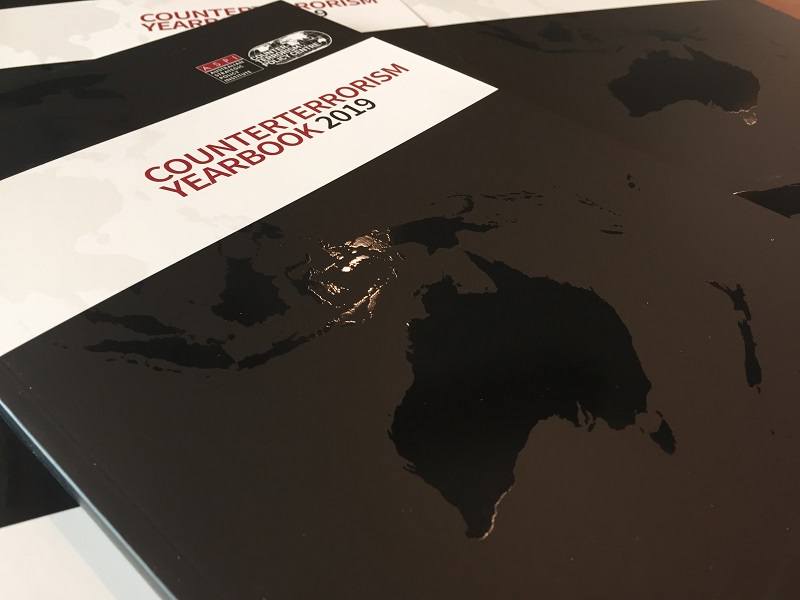
This is the preface from ASPI’s Counterterrorism yearbook 2019, which was released today. The publication presents comprehensive analyses of the threat of terrorism in different states and regions, and how governments have responded to that threat.
The global threat of terrorism is more diffuse and more diverse than ever before, and the Islamic State of Iraq and the Levant (ISIL) remains the driving influence. ISIL’s military losses in Syria and Iraq, while great, will not eliminate the threat it poses to Australia and Australian interests globally, and I expect that the threat from ISIL-inspired lone actors will endure. ISIL continues to inspire, radicalise and direct individuals in Australia to support and engage in politically motivated violence. And, while focus and attention remain squarely on ISIL, we must not forget that al-Qaeda and its affiliated organisations continue to permeate and operate and, in some cases, are stronger now than they were a decade ago.
The global reach of terrorist violence has been emphasised by numerous attacks around the world. Those attacks vary in sophistication, scale and impact, yet despite the variance, the common underlying theme is their ambition to generate fear, cause mayhem and inflict harm. In Australia—like all civil societies—our community is entitled to feel safe and secure. However, in this global environment, Australia and Australians (wherever they may be in the world) are not immune to the global reach and impacts of terrorism, which seeks to destroy the social cohesion at the heart of open, liberal democracies. Experience has taught us that we cannot take our security and peace for granted; we must remain constantly vigilant, as those who seek to do us harm adapt continuously and remain committed to their goal of undermining the fabric of our society to achieve their aims.
Counterterrorism (CT) is a necessary and evolving challenge that remains at the forefront of Australia’s—as well our regional and global partners’—national security policy, underpinned by our need to balance security and respect for the rule of law. Since 2014, we have seen 12 tranches of national security legislation pass through the Australian parliament. Numerous other pieces of supporting legislation have passed through state and territory parliaments. The strengthening of Australia’s national security legislation has made a necessary, material and enduring difference to the security of Australians and our national interests.
In my view, there are three main challenges for CT efforts in Australia and across the world.
First, terrorists continue to develop new and evolving tactics to propagate attacks. Across the world, there has been a noticeable shift away from large-scale, coordinated, sophisticated attacks towards smaller, low-level attacks with rudimentary or readily available weapons such as trucks, knives and guns, carried out by individuals who may have no clear connection to established terrorist groups. Such attacks are a challenge for intelligence and law enforcement to predict and prevent, especially as security resources are finite. However, the threat of large-scale attacks remains extant, as shown by the attempt by ISIL to bring down an Etihad flight travelling from Sydney to the Middle East in 2017. Security and intelligence services must continue to monitor, predict and respond to all vectors of attack.
Second, terrorists’ use of digital platforms to recruit supporters and mobilise ideas has proven to be a complex yet critical issue. The pace and scope of technological change require security and intelligence services to continually adapt. Despite consistent attempts to remove content and censor accounts, there is more to be done to limit the creation of new profiles and platforms through encrypted software.
Third, the threat of returning foreign fighters—whether they are going back to their countries of origin or to a third ‘host’ nation—remains problematic. Government agencies have sound processes in place to manage the return of Australians with a possible terrorism connection. It is important that foreign fighters who have returned or may return to Australia are considered by agencies on a case-by-case basis, while still ensuring and maintaining robust levels of national security.
In Australia and Western countries more generally, we can anticipate enduring risk from people who are committed to Islamist extremism. The ideology will continue to be promulgated by those individuals and groups that adhere to violent, misguided beliefs. The Australian Security Intelligence Organisation (ASIO), in partnership with other Australian agencies, is resolute in continuing to do all it can to protect Australia, its people and its interests. ASIO continues to work closely with other intelligence and law enforcement agencies to investigate threats posed by terrorism. The strength of those partnerships is reflected in the seamless collaboration in the Joint Counter Terrorism Teams, which bring together the Australian Federal Police, state and territory police and ASIO. The teams provide a coordinated and consistent approach to combating terrorism and have been responsible for the successful disruption of a number of terrorist attack plans in recent years. The decline of ISIL in Syria and Iraq will not necessarily see the decline of the threat in Australia; however, the breadth and depth of collaboration and information sharing are an enduring strength in Australia’s CT and countering violent extremism strategies.
I had the privilege of launching the inaugural ASPI counterterrorism yearbook in 2017 and am equally honoured to commend this third edition in 2019, as ASIO celebrates its 70th anniversary since its foundation in 1949. ASPI’s counterterrorism yearbooks provide an excellent and wide-ranging summary of CT issues, and this yearbook presents expert analysis and comprehensive assessments of region-wide and country-specific CT policy, strategy, legislation and operations. Moreover, it situates those elements within a broader framework of international security challenges. ASPI counterterrorism yearbooks are an important resource to advise academics, practitioners and policy advisers on global developments in CT, as well as ensuring these matters remain front of mind for lawmakers, governments and the broader community.

